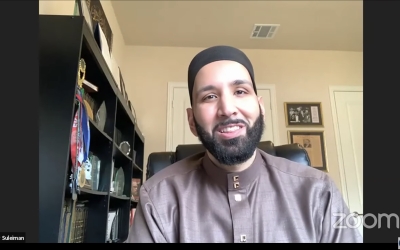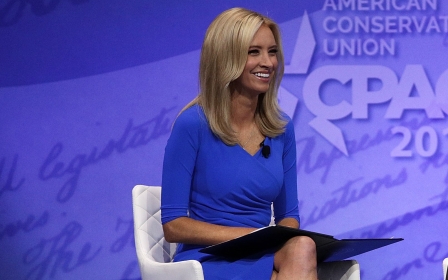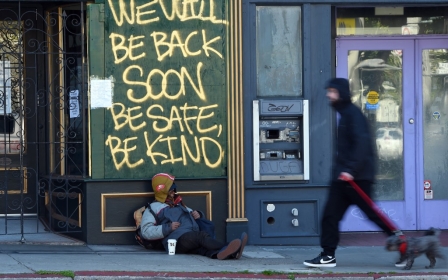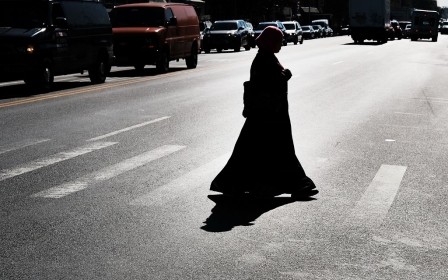'Divisive': Rights groups accuse Trump of stoking Islamophobia ahead of Ramadan
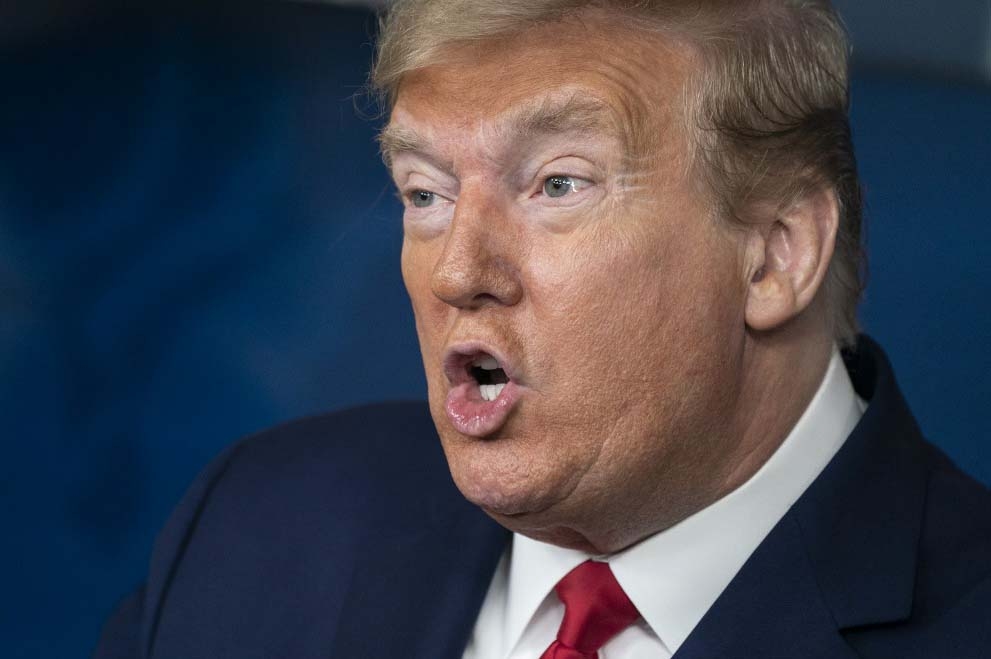
Muslim rights groups have accused US President Donald Trump of stoking Islamophobia after he said there "could be a difference" in how local authorities and politicians enforce coronavirus lockdown measures during the month of Ramadan.
During his daily coronavirus news conference on Saturday, Trump referred to the way authorities and law enforcement would impose lockdown measures on mosques compared with how they were enforced on churches during the Easter holiday.
'Do your job, Mr. President. Tens of thousands of Americans have died so far. America needs ventilators and coronavirus testing, not bigoted anti-Muslim rants'
- Farhana Khera, executive director of Muslim Advocates
"I would say that there could be a difference," Trump said. "And we'll have to see what will happen. Because I've seen a great disparity in this country."
The president made the comments after he was asked about a tweet by conservative writer Paul Sperry, which Trump had retweeted, that suggested Muslims could get preferential treatment.
"Let's see if authorities enforce the social-distancing orders for mosques during Ramadan (April 23-May 23) like they did for churches during Easter," Sperry wrote, echoing a theme that has circulated in right-wing circles on Twitter.
'Bigoted attempt at political football'
Nihad Awad, the executive director of the Council on American-Islamic Relations (CAIR), denounced Trump's remarks, calling them "divisive" and "insulting".
"President Trump's bigoted attempt to use American Muslims as a political football just before the holy month of Ramadan was as divisive as it was insulting," Awad said in a statement.
"Mosques across our nation have already announced plans to remain closed indefinitely because the American Muslim community, unlike President Trump, recognises the ongoing threat of the coronavirus."
The pandemic has overturned traditional religious gatherings and prayers since widespread lockdowns and restrictions were implemented in states throughout the country in March.
Hundreds of mosques shut their doors early last month, well before some states issued stay-at-home orders.
Deflecting blame
The Fiqh Council of North America issued a statement last week, in which it said all congregation prayers, including Eid prayers, would be "suspended until the ban on congregation is lifted".
The council said that mosques in the US would remain closed throughout Ramadan and that they should "strictly follow" the health guidelines issued by the state.
During the holy month, Muslims fast from dawn to dusk, abstaining from food, liquids and smoking. It is also a time for prayer, reflection, atonement and charity.
Farhana Khera, the executive director of the rights group Muslim Advocates, said that Trump was attempting to deflect blame from his administration's failure to handle the crisis.
So far, more than 40,000 Americans have died from the coronavirus while more than 700,000 have been infected. The global death toll stands at more than 160,000.
"It is insulting and frustrating that on the eve of Ramadan, and as all Americans are suffering because of the Covid-19 crisis, our president chooses to use his energy and platform to amplify the hateful words of a bigot," Khera said in a statement.
"Do your job, Mr. President. Tens of thousands of Americans have died so far. America needs ventilators and coronavirus testing, not bigoted anti-Muslim rants."
'Preferential treatment'
Awad also criticised the president for claiming that Muslims were getting preferential treatment amid lockdown measures.
"President Trump's claim that American mosques, many of which have been protested, threatened, vandalised and even bombed in the years since he launched his first presidential campaign, receive preferential treatment compared to other faiths is an Islamophobic fantasy," Awad said.
The American Civil Liberties Union reported in December that anti-Muslim activities had spread to 44 US states since 2005.
Meanwhile, CAIR reported over 500 incidents of anti-Muslim bigotry in the first half of 2019 alone.
"Instead of fanning the flames of bigotry to distract the public from his own failures, the President should focus on combating the continued spread of the coronavirus," Awad said.
Middle East Eye propose une couverture et une analyse indépendantes et incomparables du Moyen-Orient, de l’Afrique du Nord et d’autres régions du monde. Pour en savoir plus sur la reprise de ce contenu et les frais qui s’appliquent, veuillez remplir ce formulaire [en anglais]. Pour en savoir plus sur MEE, cliquez ici [en anglais].


